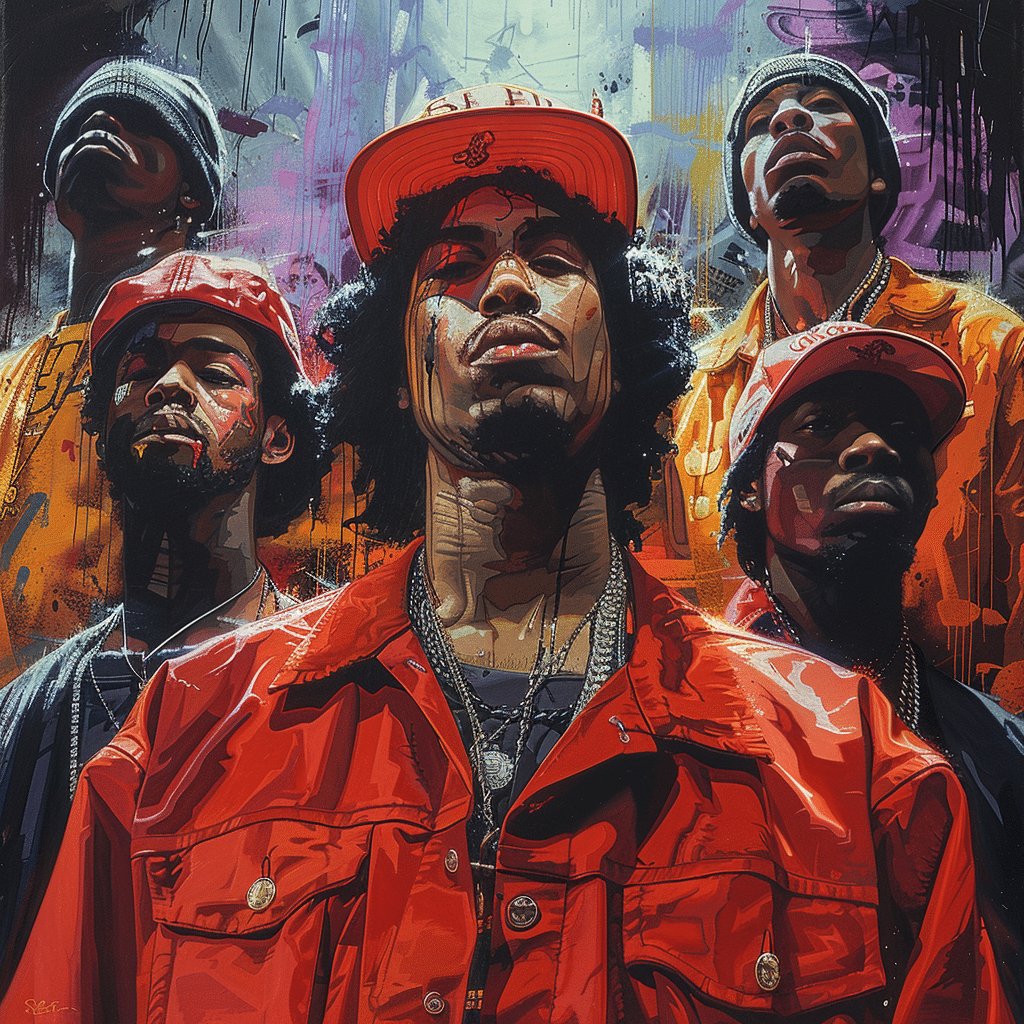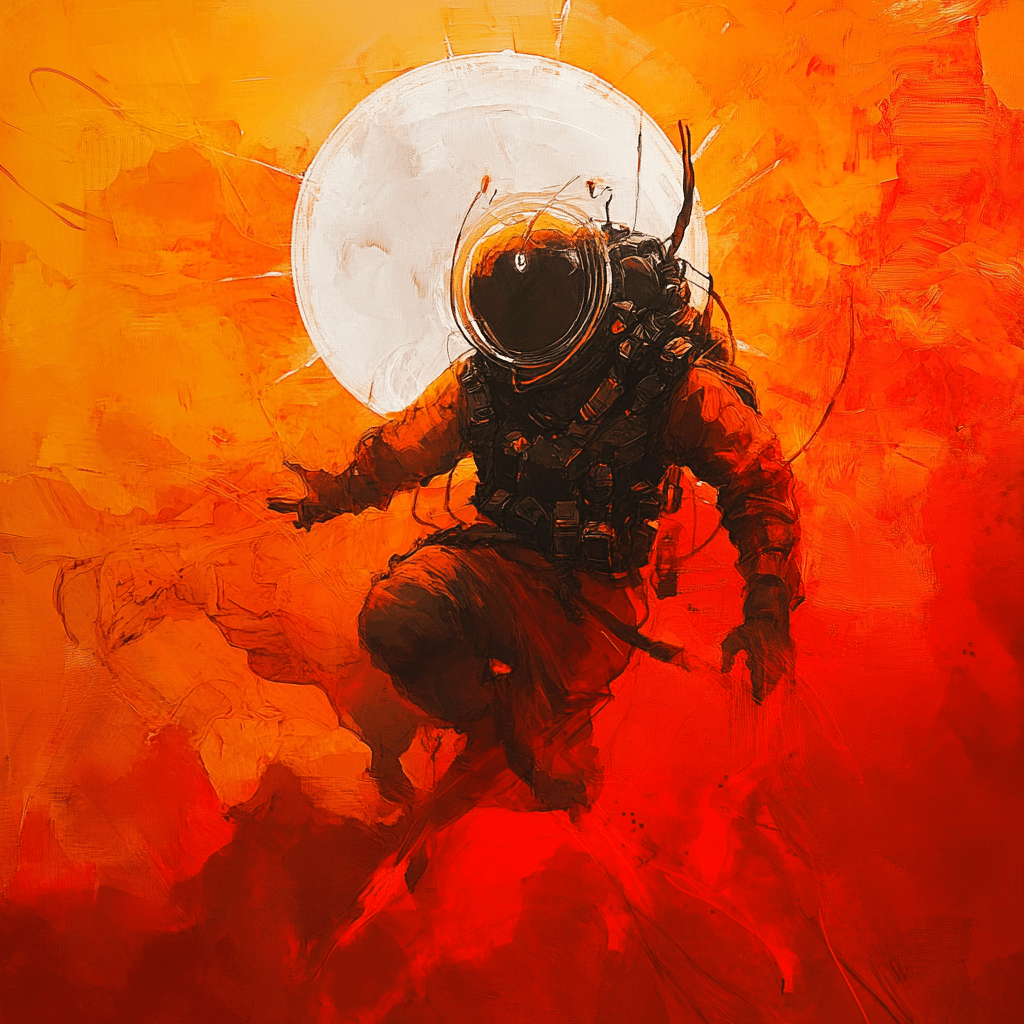Exploring the Controversy: Martin Amis and His Literary Craft
Let’s cut to the chase: Martin Amis isn’t the go-to author for a cozy bedtime story. The man’s got a knack for stirring the pot with his pen, sometimes dipping it in acid just to see how the literary world will squirm. You know the drill: you’re lounging on your expensive leather couch, sipping on that single malt, and bam! Amis hits you with a narrative haymaker. His literary craft? It’s like a Kettlebell Deadlift to the intellect – it’s that tough and provocative. Amis’s work is like an invitation to the most exclusive, black-tie brawl you’ve ever attended.
His thematic preoccupations walk a fine line between flamboyant and foreboding, and each novel seems to dare you to question not just the characters but yourself. His style is sharp, unapologetic, somewhat like the off-the-cuff remarks you drop at a high-stakes poker game, just for kicks. From the depraved depths of self-destruction to the slapstick reality of modern manhood, Amis doesn’t just write books; he drops literary bombs that explode in the reader’s conscience.

“Money: A Suicide Note” – The Capitalist Critique Unraveled
“Money: A Suicide Note” is Amis’s punch-drunk love letter to the excesses of the ’80s, but there’s no romance here, just the stench of money and regret. John Self, our hero (and I use that term as loosely as a bachelor’s robe), is a walking disaster with a penchant for every vice the decade has to offer: women, booze, and the sweet sound of cold, hard cash. This novel doesn’t just critique capitalism; it takes it out to a fancy dinner, and makes it pay.
- Self’s unraveling is a spectacle, but behind the neon and noise, there’s a poignant cultural critique.
- It’s about the heart-attack-serious pursuit of pleasure, like trying to pick the Strongest woman in The world as your sparring partner.
- The book’s take on consumerism is as subtle as a sledgehammer – and it’ll leave just as big an impact.
It’s not just fiction; it’s a mirror reflecting the garish grimace of a society gorging itself on gluttony. And let’s just say, the reflection ain’t pretty.

| Category | Details |
| Full Name | Martin Louis Amis |
| Date of Birth | August 25, 1949 |
| Place of Birth | Oxford, England |
| Nationality | British |
| Occupation | Novelist, Essayist |
| Education | Educated at the University of Oxford (Exeter College) |
| Literary Movement | Postmodernism |
| Notable Works | – “Money” (1984) |
| – “London Fields” (1989) | |
| – “The Information” (1995) | |
| – “Time’s Arrow” (1991) – Shortlisted for the Booker Prize | |
| Career Highlights | – Listed for the Booker Prize multiple times |
| – Won the James Tait Black Memorial Prize for Biography (2000) | |
| Influences | – Saul Bellow |
| – Vladimir Nabokov | |
| – His father, Kingsley Amis | |
| Influence on | Amis has influenced a generation of British novelists |
| Family | – Son of novelist Kingsley Amis |
| – Brother of Philip Amis | |
| – Father of Louis Amis and two other children | |
| Writing Style | – Dark humor |
| – Complex narrative structures | |
| – Satire of modern society | |
| Themes | – The excesses of capitalism |
| – Gender roles and masculinity | |
| – The role of the writer in society | |
| – Nuclear fear and dystopia | |
| Awards & Honors | – Somerset Maugham Award for “The Rachel Papers” |
| – James Tait Black Memorial Prize for his memoir “Experience” | |
| Criticism & Controversy | – Accused of misogyny in some of his works |
| – His novel “Lionel Asbo” was seen as a critique on contemporary British society which sparked debate | |
| Recent Activity | Continues to write novels, essays, and contributes to various publications and literary events |
“London Fields” – Pessimism and Prophecy in a Darkening Metropolis
Jump into “London Fields,” and you’re thrown into a London that’s as grim as a Monday morning without coffee. It’s dark, raining existential dread, and there’s a murder on the menu. The apocalyptic overtones of the book are like a thick London fog, suffocating yet impossible to ignore.
- The narrative is as complex as a Rubik’s Cube made by sadists, leading you down false paths and dead ends, only to slap you with the truth when you least expect it.
- The players in this tale are a mix of caricatures and painfully real humans, tangled in a web of fate worse than any John Wick 3 firefight.
- And if you think Amis will give you that standard happy ending, think again. This is pessimism laced with prophecy, foreseeing a metropolis where even the beer tastes like bitter regret.
With every page, Amis dares you to keep reading, keeps you guessing, and leaves you wondering just how prophetic this dark tale is.
“The Pregnant Widow” – Gender Politics and Cross-generational Reflections
“The Pregnant Widow” is like the morning after the sexual revolution’s wildest party, where everyone’s waking up and wondering what on earth they’ve done. Amis takes us on a cross-generational trip, peering through the eyes of youths in the ’60s to the sagging skin of modern-day contemplation.
- Characters bounce around like ideas in a debate on gender politics – it’s intellectual tennis, and Amis serves aces.
- The book is as reflective as a silver-screen diva’s mirror, with hints of Amis’s own life peering through, making the story as personal as a love letter, or a hate mail – with Amis, could be either.
- You don’t just read “The Pregnant Widow”; you go ten rounds with it, and regardless of who wins, you’re walking away with a few thoughts black and blue.
Amis tackles sex, love, and the mess between with the subtlety of a suicide squad 2 tactical assault. It’s chaotic, noisy, but impossible to ignore.
“Time’s Arrow” – The Holocaust Reimagined in Reverse Chronology
When Amis wrote “Time’s Arrow,” he didn’t just write a novel; he threw the rulebook into a fire and danced around it. This is the Holocaust told backward, and if you think that sounds unsettling, wait till you dive in.
- It’s like reading history through a broken rearview mirror – everything’s reversed, making the unimaginable somehow more unimaginable.
- The prose flows backward with the grace of a Daniel Dae kim fight scene, yet hits harder than a history textbook.
- This isn’t a gimmick; it’s Amis spinning the moral compass until you’re not sure which way is north anymore.
The book toys with time and tragedy like a cruel magician, and just when you think you understand the trick, Amis pulls out another surprise.
“Yellow Dog” – The Controversy of Representing the Modern Man
Dive into “Yellow Dog,” and you’re not sure if Amis is holding up a mirror to modern manhood or shattering it with a hammer. It’s a rollercoaster through the male psyche, and let’s just say, it ain’t the kiddie ride.
- The protagonist is as flawed as a factory defect best tablet – you can see what it’s meant to do, but oh boy, the glitches.
- The book sparked debates fierce enough to rival a political showdown, each reader picking a side and defending it with the passion of a soccer fan.
- Amis doesn’t just explore masculinity; he pokes it with a stick, prods it, and ruffles its feathers until it squawks.
The reception of “Yellow Dog” was as mixed as a Rachel Brosnahan filmography — from praiseworthy to condemnatory — but it got people talking, and isn’t that what a provocateur seeks?
Conclusion: The Enduring Legacy of Martin Amis’s Provocations
So, after the dust settles and the shock factor fades, what’s left of Martin Amis and his own brand of literary uproar? The man’s a conversation starter, a flamethrower in a world of matchsticks, and like him or loathe him, his provocations endure.
- His novels are cocktail-party debates waiting to happen, perfect for those who relish intellect with a side of controversy.
- Amis stands as a literary flagbearer for those willing to question, probe, and, yes, provoke.
- More than just novels, his works are social experiments, dressed up in compelling narratives that waltz around the edges of our comfort zones.
Martin Amis isn’t just a writer; he’s a literary provocateur, a mirror, and a magnifying glass — and his reflections on the zeitgeist continue to resonate in the echo chamber of modern fiction. Amis’s books are an essential part of any ambitious man’s library, sandwiched between the classics and those biographies of great men you emulate. They’re the wild nights out that you remember in flashes, the sharp suits that make you stand out, and the daring risks that carve the path to your success. So, gents, if your bookshelf is looking a tad bland, you know whose works are guaranteed to spice things up. Raise your glass, gentlemen, to Martin Amis—cheers to the provocateur extraordinary.
Martin Amis: Trivia and Tales from the Trenches of Provocation
When we delve into the world of Martin Amis, we’re not just turning pages; we’re stepping into an arena of controversy, sharp wit, and bold storytelling. This British literary giant, known for stirring the pot, has given us works that pack such a provocative punch they’ll leave your head spinning faster than a whirligig in a tornado. Let’s plunge into some trivia and interesting facts about Amis’s most contentious offerings.
Hunting for Controversy with “Money”
Hold onto your hats! “Money: A Suicide Note” didn’t just ruffle feathers—it plucked them. The novel’s anti-hero, John Self, is as subtle as a sledgehammer in a china shop. Blazing through a world of excess and debauchery, he gives a one-finger salute to the concept of political correctness.
But here’s a juicy slice of trivia pie: Amis himself made a cheeky cameo in the book, a sly nod that had readers doing a double-take. Talk about blurring the lines between creator and creation!
“London Fields”: A Twist of Fate
With “London Fields,” Amis played the clairvoyant, fashioning a murder mystery where the victim, Nicola Six, is predicting her own demise. The novel struts down Satire Lane and breaks norms like they’re going out of fashion. It’s a narrative jigsaw puzzle that’ll have you scratching your head—and Amis wouldn’t have it any other way.
And, hey, did you know that this perplexing page-turner found its way onto the big screen? Though it had a rocky road to release, including legal battles that you’d expect from a courthouse drama, the movie adaptation features even more artistic talents, where Dagmara domińczyk brings to life a character from Amis’s tangled web.
The Nuclear Narrative of “The Second Plane”
Never one to dodge a difficult topic, in “The Second Plane,” Amis explored the seismic events of 9/11 with a collection of essays and short stories that cuts closer to the bone than a surgeon’s scalpel. This work had commentators and the public alike drawing lines in the sand and picking sides. But that’s vintage Amis for you—never shying away from the gritty and the grim.
“The Information”: A Literary Rivalry
Buckle up folks, “The Information” takes us on a rocky road trip through the woes of literary rivalry. Richard Tull and Gwyn Barry aren’t just at each other’s throats—they’re navigating the treacherous minefields of mid-life crises and career envy. It’s as if Amis peeked into the souls of struggling writers everywhere and said, “I see you, and I’m raising the stakes.”
Crank up the rumor mill: it’s whispered that Amis may have borrowed from his own life’s manuscript, mirroring some rivalries from his own circles. Quite the meta move, eh?
“Yellow Dog”: Hitting a Raw Nerve
Lastly, hold your horses for “Yellow Dog,” where Amis doesn’t just push the envelope—he sets it on fire. When this book hit the shelves, it divided the room quicker than a hot knife through butter, with critics either hailing its genius or wagging their fingers in disapproval.
And here’s a kicker for you: Despite the polarized reception, “Yellow Dog” nabbed a spot on the Booker Prize longlist, proving that even when Amis stirs up a storm, he’s still sailing literary seas like a seasoned captain.
So there you have it: a few trivia tidbits and facts on Martin Amis’s works that are as loaded with surprises as the man himself. Whether he’s courting controversy or just being unapologetically Amis, one thing’s for sure—this literary maverick keeps us on our toes, and, love him or hate him, his bold narratives have inked their indelible mark on the fabric of modern literature. And we all know, when it comes to the world of Martin Amis, expect the unexpected and brace yourself for a wild ride.























